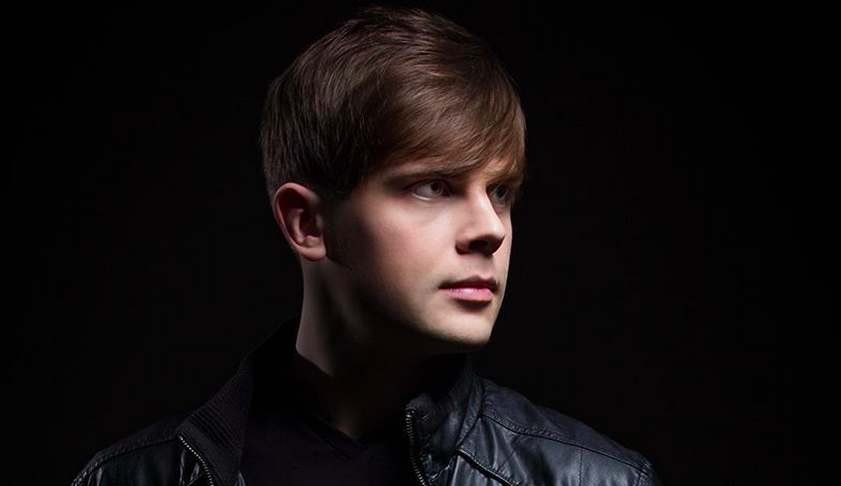At Electric Daisy Carnival Las Vegas, rising Estonian DJ/producer Syn Cole made a quick stop to perform the Circuit Grounds stage before heading off to Asia for headlining sets in Hangzhou China, Tokyo Japan and beyond. Splice had an opportunity to catch up with him to learn about his roots in classical music, favorite production tools, workflow with collaborators and more.
Nate Mars: You’ve grown up classically trained playing piano. Can you tell us little more about how you transitioned to producing electronic music?
Syn Cole: Yeah, I was going to music school when I was little kid, for seven years, studying piano. Back then, I didn’t do any producing, just listening to random music on the radio and maybe composing little bit of classical music, because it was a lot related to what I was studying. But I think it was the end of ’90s when a friend introduced me to production with classic dance tracks… the really early ones, and I really liked those. I think that was which got me into EDM. Still, it took many, many years before I started any production. I was just playing around, not producing any of my own music, yet. I was basically, playing around with synths but in 2007, I started the producing and took it really seriously. I think that’s pretty much the beginning.
NM: So, in 2007, something clicked after all the years of studying classical music?
SC: Yeah. I was already producing a little bit in 2006, but not really seriously. I was still going to school and I was doing more trancy music back then under a different name. But in 2007, I had my first releases. With Syn Cole, the first thing I did was in 2012. It was the remix for Avicii. Before that, I didn’t have any Syn Cole mixes or releases.
AvicciI Hey Brother- (Syn Cole Remix)
NM: When it comes to production, were you starting with hardware or did you start using software?
SC: I’ve always used software with just a midi keyboard for recording melodies. That’s about it. I use plugins like Sylenth, ReFX Nexus, and Spectrasonics Omnisphere. My main DAW is Cubase. I use Omnisphere and Nexus somewhat rarely, but Sylenth is my main thing. Lots of processing with Sylenth. I use it for all bass lines and leads.
NM: As a trained pianist, when you’re entering midi, is it really important for you to have a weighted midi keyboard? Does that matter more to you?
SC: I actually don’t like the weighted keys. I like the synth keys, the light ones, because it’s way faster to play melodies. But for really classical piano pieces, maybe that’s when the weighted keys are more important. It is weird, because I used to play on grand piano in music school. It’s super weighted and super different, but I like the non‑weighted for producing music.
NM: In terms of collaborating with other artists, do you prefer to work alone in the studio? Or are you at this point more interested in working with others?
SC: So far I only have my own solo releases. There are only three of those so far, but right now, I have three collabs going on. It’s too early to name them, but there’s going to be some big collaborations.
NM: Without naming them, can you tell us a little bit of what the workflow is like? Are you passing files back and forth, are you sitting in the studio?
SC: Yeah, we pass files back and forth because we live in different countries right now and aren’t able to meet. So, we are swapping audio files because we are working on different software.
NM: You’re in Cubase?
SC: Yeah, I’m Cubase version 7.5 I really like it and it’s really, really stable and super fast platform right now. I actually use it on Boot Camp running Windows, because it’s much faster on Windows than your OS X. My main workstation at home is PC, but on the road it’s a Macbook, but on Windows.
NM: Interesting. I know in Cubase 7.5 one of my favorite features is that new chord suggestion feature to help generate progressions.
SC: Yeah, you can create some really complex electro progressions, like maybe Wolfgang Gartner or something.
NM: In your production, do you think that it’s the classically‑trained background that draws you so much to melodic production, or is that just something that you’ve always been drawn to?
SC: Yeah, I’ve always liked keep things melodic and not too banging, especially, breakdowns, which are the most melodic in my productions. I think it is the classical influence for me.
NM: If you were going to play someone who hadn’t heard your music one track, what would be the track that you’d play for them first?
SC: I think it’s Miami 82, because it is so new. It hasn’t grown yet, because it just was released a few days ago. Miami 82 is beginning to do well on US radio and Billboard, climbing the charts. So.. Yeah, definitely, Miami 82 for me.
NM: Do you have any advice to share with newer music producers?
SC: For me, it’s listening to different music than I produce, not to only listen to my own genre. For example, I listen to classical music like film scores and soundtracks, which have awesome melodies and chord progressions. So, that’s my recommendation, to listen to something different than what you’re going to make.
Listen to Syn Cole’s set from EDC here:
https://soundcloud.com/only-the-beat/syn-cole-edc-las-vegas-2014-circuitgrounds-day-2
About the Splice Artist Series – We empower music creators to create and collaborate fearlessly. Our goal is to build the best platform possible in order to enable that process. We hope that you learn just as much as we do, hearing from artists about their workflow and how they collaborate. Most importantly after reading, we hope you are inspired to make music!
July 7, 2014

.svg)
.svg)







